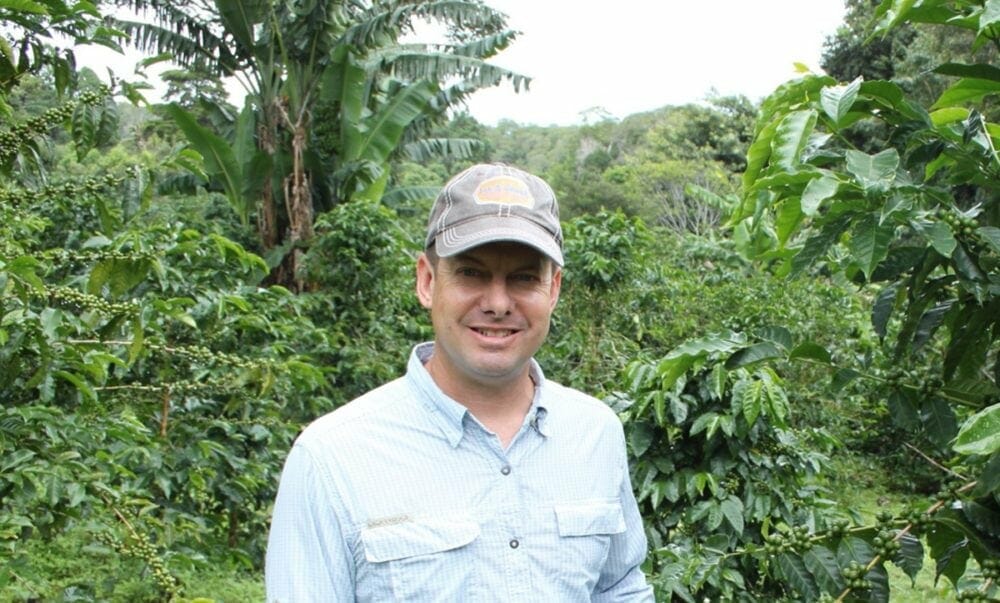Get to know your customers. It’s essential to produce a product that works for each side of an investment.
Chris Rawley is an entrepreneur who wants to connect people to the world’s food system by making it easier to invest in production agriculture. Chris is the founder and CEO of Harvest Returns, an online platform for investing in agriculture. His background in real estate investing, tech, and as a military leader with extensive experience in developing countries came together to develop a unique concept that allows farmers to raise capital using equity crowdfunding.
He has held corporate management roles in Jones Lang LaSalle, Electronic Data Systems, L-3 Communications, and served as a defense consultant at Special Operations Command headquarters with Blackbird Technologies. He has also worked as a real estate developer and investor in Fort Worth, Texas.
As a Captain in the United States Navy Reserve, he commands a unit that deploys small teams across West Africa to help those countries build up their defenses against piracy and illegal fishing. During his 25 year military career, Chris has filled a variety of leadership positions in naval, expeditionary, and joint special operations units afloat and ashore. He has deployed to Afghanistan, Iraq, throughout Africa, the Middle East, and Western Pacific. He is a graduate of Texas A&M University and earned an MBA at George Washington University.
Where did the idea for Harvest Returns come from?
Agriculture is a great investment; it beats the stock and bond markets over the long term, and it’s great for diversifying a retirement portfolio. The problem is, there are limited ways for the average investor to access agriculture deals. Without extensive knowledge and a significant amount of capital, it is very challenging to acquire a farm of the size needed to be profitable. By introducing the concept of equity crowdfunding to production agriculture, Harvest Returns has opened up the asset class to millions of more investors who may not have been able to enjoy its benefits.
What does your typical day look like and how do you make it productive?
I don’t have many typical days. Sometimes I’m in the office early, sometimes I’ll work out in the morning. I travel quite a bit. Occasionally, I will find myself waking up in some far-flung West African country for Navy reserve duty. I try to make my days productive by thinking about what I want to accomplish before getting started.
How do you bring ideas to life?
Besides a lot of reading, I listen to podcasts while I exercise and generally get inspiration listening to other peoples’ stories.
What’s one trend that excites you?
The introduction of technology in agriculture is changing the way farmers around the world grow food. Technology mitigates the risk of investing in agriculture by reducing the threats associated with weather, disease, and insects, while increasing yields and profitability.
What is one habit of yours that makes you more productive as an entrepreneur?
Most “habits” are generally bad, so instead of a habit, I focus my spare time on doing things that keep myself physically, mentally, and spiritually healthy.
What advice would you give your younger self?
Take a risk and start a company sooner.
Tell us something that’s true that almost nobody agrees with you on.
Anthropogenic climate change is a huge scam.
As an entrepreneur, what is the one thing you do over and over and recommend everyone else do?
Be self-critical about your business model. What can you do to improve it?
What is one strategy that has helped you grow your business?
Get to know your customers. At Harvest Returns, we have two very different customers – farmers and high net worth investors. It’s essential to understand both to produce a product that works for each side of an investment.
What is one failure you had as an entrepreneur, and how did you overcome it?
I failed to seek out specialized service providers and blew through a lot of capital because of it. Hiring someone just because they are local or recommended by a friend is not necessarily the best option, especially if you are in a niche industry.
What is one business idea that you’re willing to give away to our readers?
Start an indoor farm. Producing organic food in climate controlled conditions closer to where it is consumed is going to be increasingly popular in the U.S.
What is the best $100 you recently spent? What and why?
Digital advertising. We are getting better and better results with our advertising. It’s a skill that takes time to understand and grow, although outsourcing helps flatten that learning curve.
What is one piece of software or a web service that helps you be productive? How do you use it?
Most of our business is managed on the cloud, so we use a number of different web services. Mailchimp is awesome. We use it to communicate with both farmers and investors.
What is the one book that you recommend our community should read and why?
“The Lean Startup“, by Eric Ries. The concepts of experimentation and iteration are essential to any entrepreneur.
What is your favorite quote?
Related to investing: “How many millionaires do you know who have become wealthy by investing in savings accounts? I rest my case.” – Robert G. Allen
Key Learnings:
– If you have a “big idea” for a business, go for it, before someone else does!
– Be careful when choosing service providers. Industry specialization is important!
– Carefully segment and understand your customer base so that you can better target them with your marketing efforts.
Connect:
HarvestReturns.com
Harvest Returns on Facebook:
Harvest Returns on Twitter:
Harvest Returns on Linkedin:
Harvest Returns on Instagram:
Carlyn runs the day-to-day publishing operation here at ideamensch and interacts with our awesome customers and entrepreneurs. She is likely editing this with a cat on her lap.

